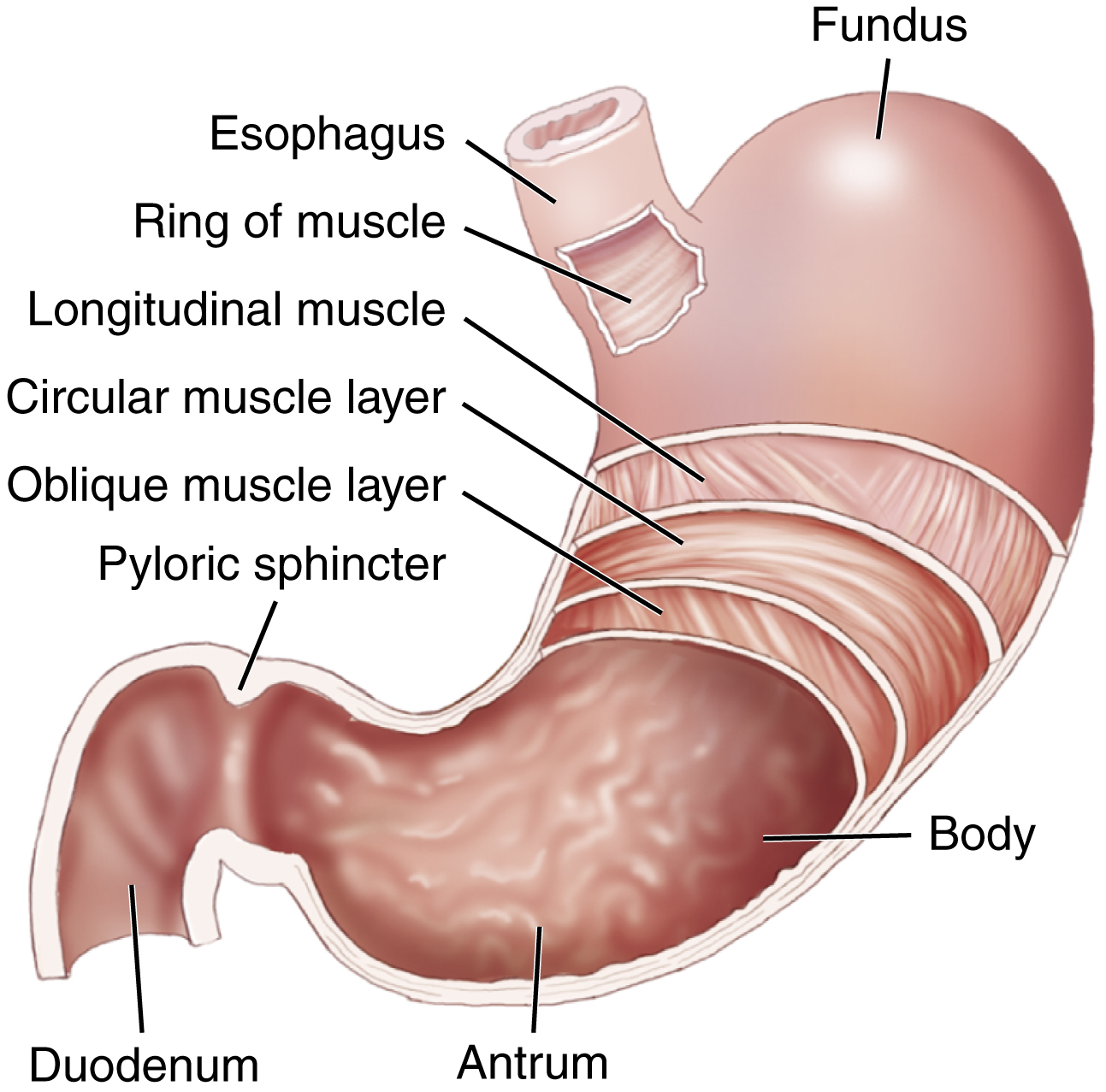pyloric stenosis, a narrowing of the pyloric sphincter at the outlet of the stomach, causing an obstruction that blocks the flow of food into the small intestine. The condition occurs as a congenital defect in 1 of 200 newborns and occasionally in older adults secondary to an ulcer or fibrosis at the outlet. Diagnosis is made in infants by the presence of forceful projectile vomiting and palpation of a hard, prominent pylorus and in adults by x-ray examinations after a barium meal. Surgical correction is done with the patient under light general anesthesia after the stomach is emptied. The muscle fibers of the outlet are cut, without severing the mucosa, to widen the opening. After surgery in adults, a stomach tube remains in place and observation is maintained for signs of hemorrhage or of blockage of the tube. See also pyloromyotomy.

